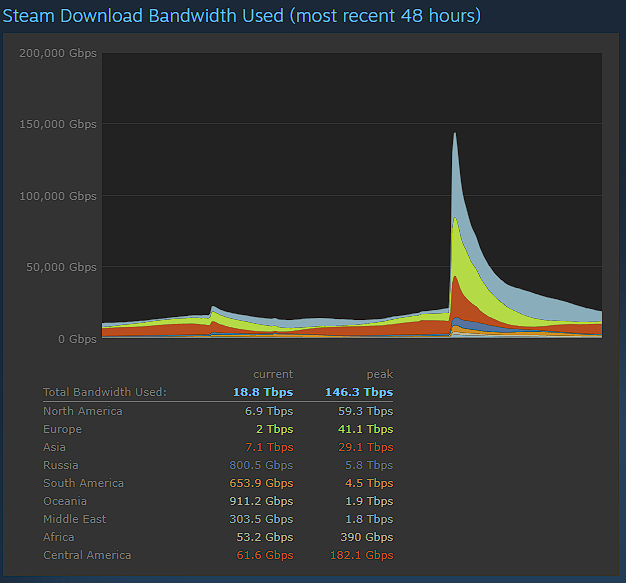this post was submitted on 04 Aug 2023
1464 points (98.8% liked)
Games
32731 readers
2730 users here now

Welcome to the largest gaming community on Lemmy! Discussion for all kinds of games. Video games, tabletop games, card games etc.
Weekly Threads:
Rules:
-
Submissions have to be related to games
-
No bigotry or harassment, be civil
-
No excessive self-promotion
-
Stay on-topic; no memes, funny videos, giveaways, reposts, or low-effort posts
-
Mark Spoilers and NSFW
-
No linking to piracy
More information about the community rules can be found here.
founded 1 year ago
MODERATORS
you are viewing a single comment's thread
view the rest of the comments
view the rest of the comments

Steam would profit from integrating something like the bittorrent protocol for downloads imo
Off the top of my head, I know Windows Update and the Battle.net launcher both do this
Do you have any source or article about this? I'd love to hear more about this.
Microsoft's implementation of the feature is called Windows Update Delivery Optimization.
https://support.microsoft.com/en-us/windows/windows-update-delivery-optimization-and-privacy-bf86a244-8f26-a3c7-a137-a43bfbe688e8
Here's a short optimisation guide: https://www.ctrl.blog/entry/windows-delivery-optimization.html
Fundamentally it's not like the Bittorrent protocol, even though there are similar behaviours and the result is the same. Microsoft retains the ability to stop the network from seeding updates and has ways of only targeting specific supported configurations to receive new updates.